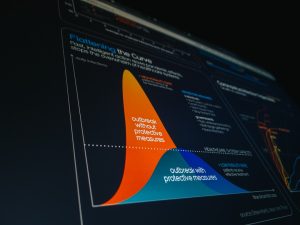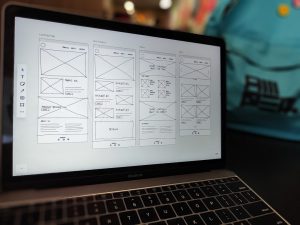
Destiny 2, Bungie’s free-to-play online multiplayer first-person shooter, is renowned for its expansive world-building, dynamic combat encounters, and rich storytelling. A key component of what makes Destiny 2 such a compelling and immersive game is the use of advanced technologies under the hood—including Artificial Intelligence (AI). As AI becomes an increasingly common term in both gaming and tech discussions, many players and observers have asked: Does Destiny 2 use AI? This article aims to explore that question in depth, explaining how AI influences the Destiny 2 player experience and how Bungie has utilized it to shape the game’s dynamic environment.
What is AI in the Context of Video Games?
Before diving into Destiny 2‘s specific implementation, it’s important to define what AI means in video games. In gaming, AI generally refers to the programming of non-player characters (NPCs), enemy behaviors, adaptive environments, and sometimes even the backend systems that manage events and matchmaking. AI in games allows for the simulation of intelligent behavior, creating the illusion that NPCs are “thinking” or reacting to player actions in real time.
Game AI is not the same as the generative, conversational AI systems like ChatGPT or image creators like MidJourney. Instead, it’s a set of algorithms designed to control in-game entities. In Destiny 2, AI plays a crucial role in maintaining the game’s immersive quality and dynamic feel.
How Destiny 2 Uses AI
Destiny 2 incorporates several layers of AI within its gameplay framework. From enemy strategy to server load balancing, AI technologies weave through nearly every part of the game’s architecture.
1. Enemy Behavior and Combat Tactics
The most noticeable use of AI in Destiny 2 is in how the various enemy factions behave. Each enemy type, from the cunning Fallen to the hive-minded Vex, operates using customized logic. Bungie’s AI systems enable enemies to:
- Take cover and reposition based on the player’s attacks
- Cooperate with other enemies, such as a sniper providing cover while other enemies flank you
- Use abilities in adaptive ways depending on the threat level
These elements give the game its signature dynamic combat feel, making every strike, raid, or public event feel different. The enemy AI is designed to ensure that even routine encounters remain engaging and unpredictable.

2. Pathfinding and Navigation
Another key aspect where AI comes into play is pathfinding—how characters, both friendly and hostile, move within the game world. Navigation meshes (navmeshes) and waypoints guide NPCs through the game’s complex, three-dimensional environments. This allows NPCs to find effective ways to go from one point to another without walking into walls or getting stuck.
3. AI in PvEvP Modes
Destiny 2’s unique modes like Gambit, a hybrid PvE and PvP experience, also employ AI in interesting ways. The enemies players defeat during the PvE segments are AI-controlled, while the invading players are, of course, controlled by humans. Here, AI has to provide an adequate challenge while balancing the player-driven chaos that occurs during an invasion.
4. Dungeon and Raid Boss Mechanics
During endgame activities like dungeons and raids, AI-controlled bosses often feature multi-phase fights and mechanics that require AI algorithms to manage animation cycles, player detection, and timing-based reactions. For example, rotating between damage phases and summoning reinforcements is AI-driven, requiring coordination that’s responsive to how the player progresses through battle stages.
AI Behind the Scenes
Beyond the visible AI elements, Destiny 2 also uses AI in more subtle, backend ways to maintain quality experiences for its massive player base.
1. Matchmaking and Skill Balancing
Matchmaking in Crucible (PvP) is one of the more opaque applications of AI. Bungie has implemented machine learning algorithms to handle skill-based matchmaking (SBMM), analyzing player stats, kill-to-death ratios, win/loss history, and more. The goal is to group players into fair, competitive matches as efficiently as possible. AI helps in striking a balance between fairness and fun, especially in high-population events or Trials of Osiris.
2. Dynamic Event Management
Seasonal events, World Quests, and some public events in Destiny 2 have dynamically scaled difficulty depending on the number of players participating. These adjustments are managed using AI logic trees that determine event flow, enemy scaling, and reward distribution. Bungie’s developers use AI in this capacity to ensure events are neither too easy nor overly punishing.

3. Cheating Detection and Anti-Cheat System
In the realm of player security, AI is employed in Destiny 2’s anti-cheat systems. Machine learning algorithms analyze player data to detect abnormal behavior—such as wallhacks, aimbots, or speed modifications. These systems operate in the background and help isolate cheaters more reliably and faster than human moderation alone could manage.
Future Implications of AI in Destiny 2
As technology advances, the role of AI in Destiny 2 could expand dramatically. Generative AI, for instance, could one day be used for:
- Creating procedural mission content
- Designing dynamic dialogue for NPCs
- Offering real-time assistance or tips directly in gameplay
While Bungie has not confirmed any moves toward integrating generative AI, the broader industry trends suggest it might not be far off. For now, though, Destiny 2 remains a striking example of how sophisticated, rule-based AI can elevate a gaming experience.
Conclusion
So, does Destiny 2 use AI? Absolutely. Bungie employs AI across a wide spectrum of the game’s systems—from the way enemies outmaneuver the player, to the mechanics of raids, matchmaking, and event scaling. As gaming continues to evolve, and as AI becomes more powerful and accessible, Destiny 2 is likely to remain a living case study of AI’s critical role in game design.
FAQ
- Q: Does Destiny 2 use AI to control enemies?
Yes, enemy behavior in Destiny 2 is managed through complex AI systems that allow for tactics like flanking, taking cover, and coordinating attacks. - Q: Is AI used in Destiny 2’s matchmaking?
Yes, Bungie uses machine learning algorithms to balance matches, especially in PvP modes like Crucible and Trials. - Q: Are bosses in Destiny 2 controlled by AI?
Yes, raid and dungeon bosses follow AI-controlled patterns and decision trees, allowing for dynamic multi-phase battles. - Q: Does Destiny 2 use generative AI like ChatGPT?
Currently, there is no publicly available information indicating that Bungie uses generative AI for dialogue or story generation in Destiny 2. - Q: Can AI in Destiny 2 learn from players?
While advanced learning AI isn’t confirmed, Bungie uses data-driven systems that adapt in real-time to improve gameplay fluidity and balance.






